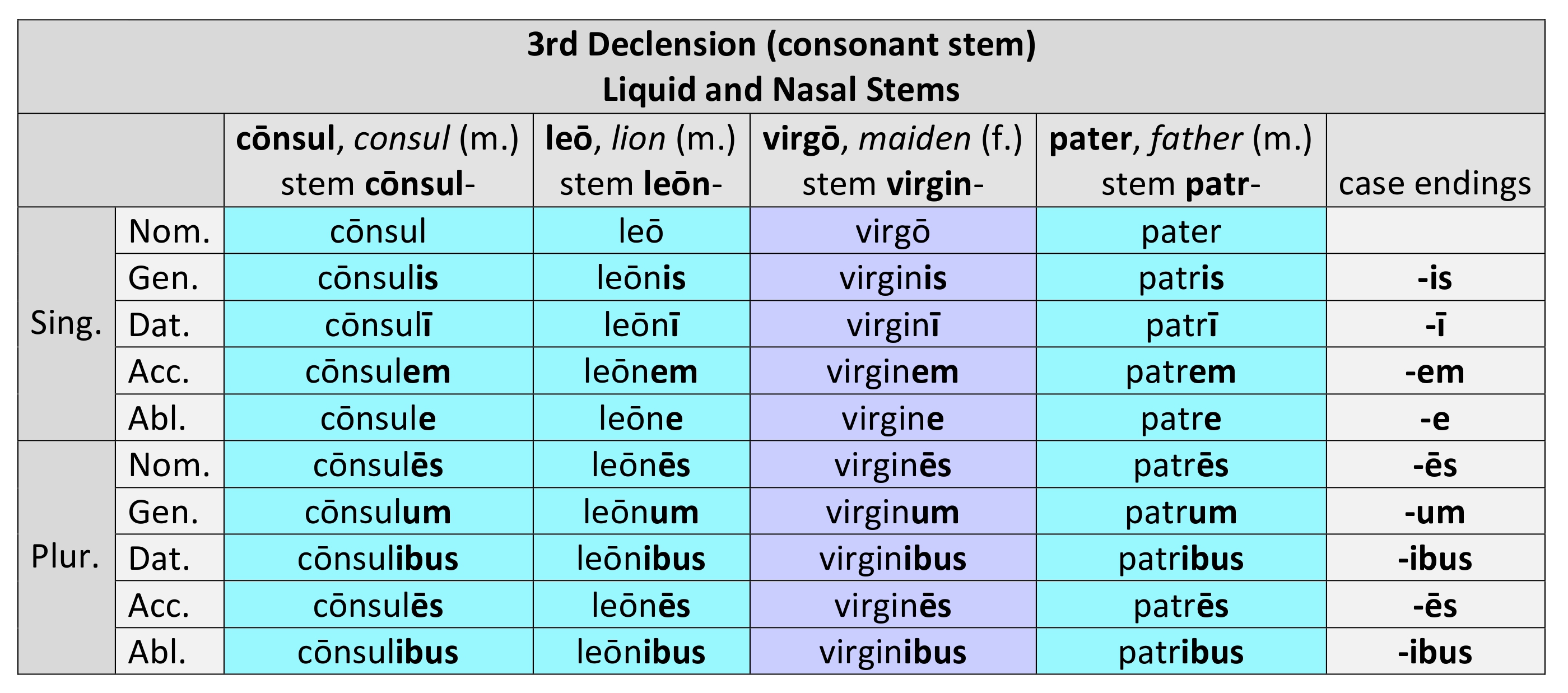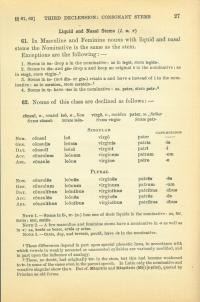61. In masculine and feminine nouns with liquid and nasal stems the nominative is the same as the stem.
Exceptions are the following:
1. Stems in ōn- drop n in the nominative.
legiō, stem legiōn-
2. Stems in din- and gin- drop n and keep an original ō in the nominative.
virgō, stem virgin-1
3. Stems in in- (not din- or gin-) retain n and have e instead of i in the nominative.
cornicen, stem cornicin-1
4. Stems in tr- have -ter in the nominative.
pater, stem patr-2
62. Nouns of this class are declined as follows.
Note 1— Stems in ll-, rr- (n.) lose one of their liquids in the nominative.
far, farris
mel, mellis
Note 2— A few masculine and feminine stems have a nominative in -s as well as in -r.
honōs or honor
arbōs or arbor
Note 3— Canis, dog, and iuvenis, youth, have -is in the nominative.
Footnotes
2. These, no doubt, had originally ter- in the stem, but this had become weakened to tr- in some of the cases even in the parent speech. In Latin only the nominative and vocative singular show the e. But cf. Māspitris and Māspiteris (Mā[r]s-piter), quoted by Priscian as old forms.


